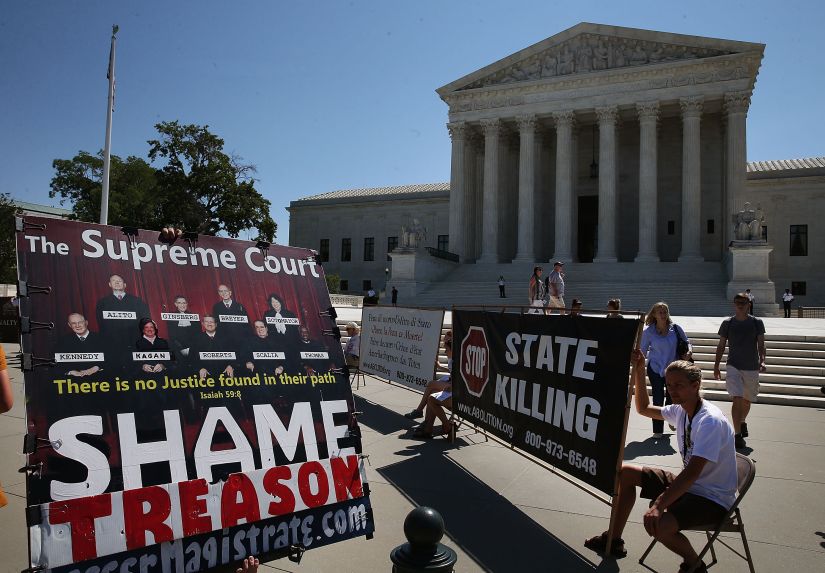
Source: Photo by Mark Wilson / Getty
If last week wasn’t big enough with historic rulings on Obamacare and same-sex marriage, the Supreme Court made two more major announcements on Monday.
One is that the court has once again agreed to weigh the issue of affirmative action in higher education, saying Monday that it will consider a challenge to the University of Texas’ efforts to create racial diversity on campus, writes Politico.
The case involves Abigail Fisher, who is White and argues that her rejection from the university in 2008 was based on its affirmative action policy.
The justices already ruled on the case two years ago, kicking it back to the lower courts, ruling 7-1 that they failed to conduct a strenuous review of the Texas program, notes the report. Now, in deciding to hear the case again, conservative justices will have a chance to determine the fate of the policy designed to promote equal access to education for people of color.
From Politico:
Justice Elena Kagan recused herself from the decision to take up Fisher’s case again. Her absence raises the prospect that the justices could wind up splitting evenly, which would result in no binding precedent for other cases.
UT automatically admits all applicants who graduate in the top 10 percent of their class. After that, administrators employ what the appeals court — in a 2-1 ruling in July — deemed a “holistic” admissions process. The courts allow colleges to use race to achieve diversity and promote equal opportunities, but only when alternatives would require an even greater use of race, the judges said.
In another precedent setting case, the court ruled 5-4 Monday to uphold a procedure used by states to conduct executions by lethal injection, according to The Washington Post.
Justice Samuel A. Alito Jr. wrote the opinion in the case that was brought by death-row inmates in Oklahoma, who complained that the sedative called midazolam violates the Constitution’s prohibition on cruel and unusual punishment, writes The Post:
Alito said the prisoners failed to identify a “known and available alternative method of execution that entails a lesser risk of pain,” which he said was required under the court’s previous ruling upholding lethal injection. And he said plaintiffs had failed to establish that a massive dose of midazolam “entails a substantial risk of severe pain.”
The lethal injection decision and the Texas announcement likely cap off the court’s 2015 session, which is ending with a bang. Last week, the court sent shock waves across the nation, well, the Republican Party, after ruling that same-sex marriage is a constitutional right and that Obamacare subsidies are legal.
SOURCE: Politico, the Washington Post | PHOTO CREDIT: Getty
SEE ALSO:
Update: President Obama Praises Supreme Court Decision to Uphold Health Care Law
All About Love: SCOTUS Rules 5-4 That All 50 States Must Allow Same Sex Marriage
Supreme Court To Rule On Texas Campus Affirmative Action Case, Upholds Lethal Injection Technique was originally published on newsone.com














